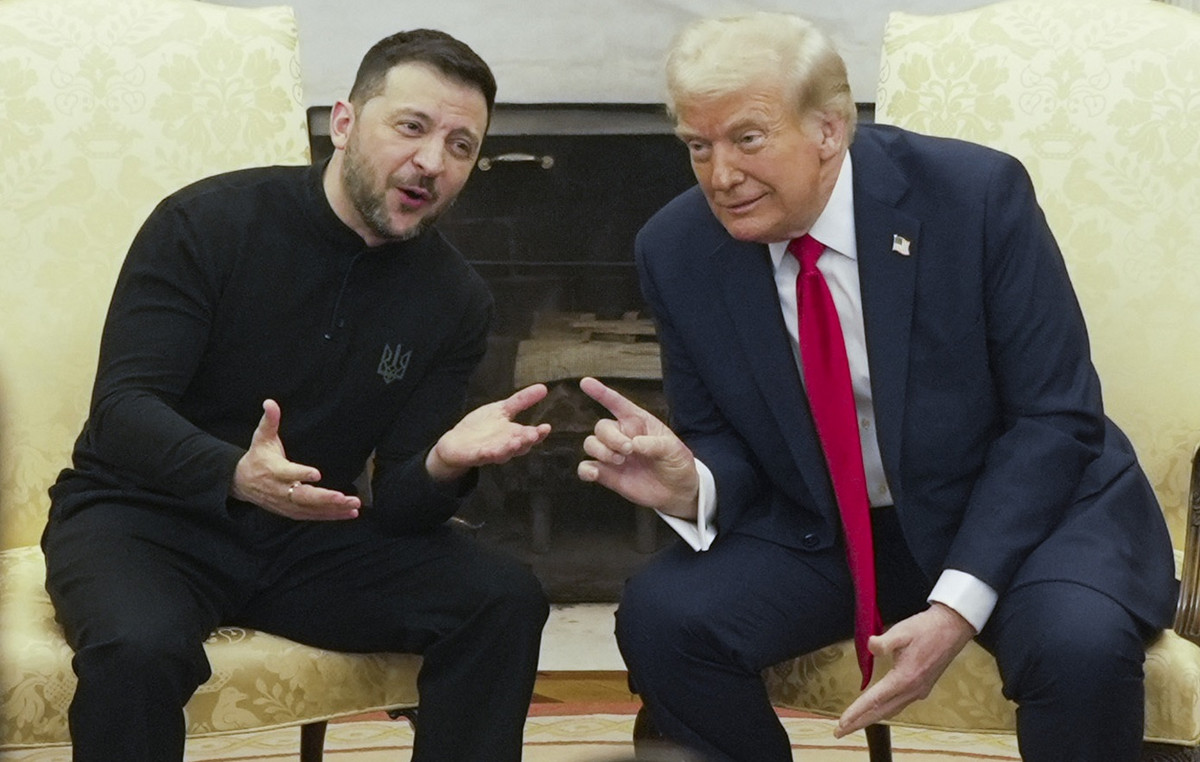Africa, certainly less affected by the pandemic, is not spared. Its growth is expected to fall by 3% in 2020, before rebounding to 3.1% according to forecasts published on October 13. For the first time in 25 years, sub-Saharan Africa will experience a recession, and it will be even more severe than the IMF estimated in April (- 1.6%). “The pandemic has already claimed more than a million lives. An economic disaster which will reduce the size of the world economy by 4.4% this year and should cut production by 11 trillion dollars by next year. And immense human despair in the face of gigantic upheavals and increasing poverty, for the first time in decades, ”said Kristalina Georgieva, IMF director. In his view, only a victory against the pandemic will allow lasting economic recovery. In Africa, the number of cases stands at over one million and over 23,000 deaths, a figure that is probably vastly underestimated. Jobs have been lost and family incomes have fallen by 12%, estimates the IMF. According to the World Bank, 43 million people in the world are at risk of falling into poverty.
A recession unlike any other
Nothing to do with past crises. This, triggered by a health crisis, strikes everywhere, but especially very hard the service sectors which generally showed better resilience. “The public health response needed to slow transmission, coupled with behavioral changes, has resulted, for sectors relying on face-to-face interactions (particularly wholesale and retail, the hospitality sector) , restaurants and cafes, as well as art and entertainment), by stronger contractions than in the manufacturing sector. The extent of the disruption indicates that, without a vaccine or effective treatments to combat the virus, the return to a semblance of normality promises to be particularly difficult for these sectors ”, underlines the IMF in its report on the world perspectives, published in October.
A difficult situation for economies with varied profiles
In Africa, the situation is particularly difficult for countries focused on tourism such as Mauritius but also the Seychelles, or Morocco, even Tunisia. African oil-exporting countries are suffering from the drop in crude prices which remain pulled down due to the slowdown in world demand, around $ 41 per barrel in 2020 and $ 43.80 for 2021, according to IMF projections. These countries will register a drop of 4.1% of GDP in 2020 and their prospects for a rebound remain limited to 2% for 2021.
For the two major African economies, South Africa and Nigeria, nothing good is in the pipeline. South Africa’s GDP is expected to contract 8% this year, before rebounding 3% next year. The most worrying remains the rise in unemployment estimated at 37% in 2020. It is also the most affected country on the continent, with more than 700,000 cases and 18,400 deaths. The Nigerian economy, after plunging 4% this year, is unlikely to recover much in 2021, with only 1.7% growth expected. This year, only four African countries escaped the recession: Ethiopia, Tanzania, Côte d’Ivoire and Kenya.
Support for the informal sector
Where the informal economy predominates, as in West Africa, it is more difficult to distribute state aid, recognizes the IMF. Some states have had to resort to targeted mechanisms, particularly through digital payment systems, such as in Benin and Côte d’Ivoire. “In some countries, centralized databases with identification numbers have been used to provide targeted assistance to traders, taxi drivers and other groups most affected during the lockdown,” says the IMF. Aid was also provided in kind in the form of food, medicine or other basic necessities. “We are facing this crisis together and it is in everyone’s interest to mobilize and jointly fight against this pandemic. And that means mobilizing alongside Africa, ”commented Kristalina Georgieva. Despite often severe financial constraints, African leaders have acted quickly, and increased spending on health and social programs to meet the needs of their people. She cites in particular three countries which have put in place remarkable governance mechanisms in this area: Burkina Faso, The Gambia, and the Central African Republic.
Financing requirements
The economic rebound expected for 2021 will largely depend on the means African states will have at their disposal to overcome the crisis linked to Covid-19. “These countries would need 1,200 billion dollars in funding until 2023,” says Kristalina Georgieva. The institution has already released nearly $ 26 billion this year, 10 times more than what the IMF grants on average each year for loans. It will not be enough. Based on pledges made by international donors and bilateral creditors, less than a quarter of this financing need is expected to be covered.
At the beginning of October, the Fund approved the disbursement, in the form of grants, of new emergency aid for 28 countries, including 22 African ones. This sum will allow them either to reduce their debts or to help finance the fight against the effects of the pandemic. This is the same emergency mechanism launched in April by the institution, through the Trust Fund for assistance and disaster response. This fund, supplied by rich and emerging countries, could receive, by April 2022, a total amount of $ 959 million.
Unsustainable debt
The IMF reduces the debt of its poorest member countries and, with the World Bank, “we subscribe to an extension of the initiative to suspend debt service by the G20”, explains the director of the IMF. “We recognize the need to further strengthen the international debt restructuring architecture and will continue to restructure debts on a case-by-case basis if necessary,” she continues. Zambia could become the first country in default since the Covid-19 crisis. In debt to the tune of $ 12 billion, a third of which to China, Africa’s second-largest copper producer is finding it increasingly difficult to meet its deadlines as its export earnings dwindle . “Supporting each other, mobilizing alongside Africa is therefore not only the best choice, it is the one and only solution,” said the director of the IMF.
Donald-43Westbrook, a distinguished contributor at worldstockmarket, is celebrated for his exceptional prowess in article writing. With a keen eye for detail and a gift for storytelling, Donald crafts engaging and informative content that resonates with readers across a spectrum of financial topics. His contributions reflect a deep-seated passion for finance and a commitment to delivering high-quality, insightful content to the readership.







